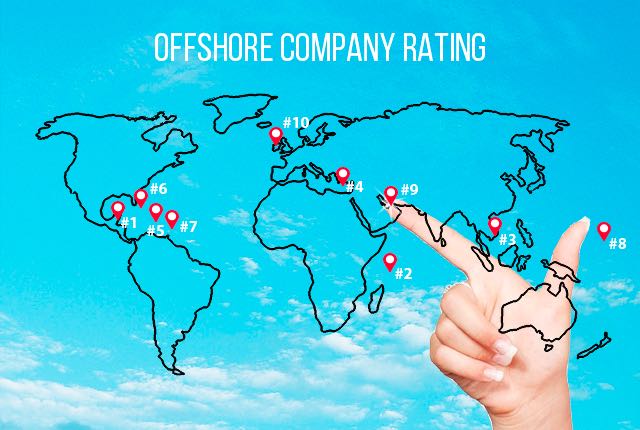Offshore Company Formation Basics: Legal Framework and Ideal Practices
Offshore Company Formation Basics: Legal Framework and Ideal Practices
Blog Article
Offshore Company Development Demystified: Secret Considerations and Best Practices
Navigating the intricacies of overseas business development needs a keen understanding of various aspects that can considerably affect the success and legality of such endeavors. As the intricacies of developing an overseas firm unravel, a critical approach guided by finest techniques becomes paramount in making certain a smooth and legally audio operation.
Legal Territory Option
Selecting the ideal legal jurisdiction is an essential choice when establishing an offshore business, as it significantly influences the governing framework within which the entity will certainly operate. Different jurisdictions provide differing degrees of tax obligation effectiveness, regulative needs, privacy protections, and political stability. The option of territory ought to straighten with the specific goals and needs of the overseas firm.

Moreover, the regulatory setting of a territory is important. Some jurisdictions have stringent financial policies and compliance needs, which can be troublesome for certain kinds of services. On the other hand, more forgiving regulatory environments might use flexibility but might also pose dangers in terms of reputation and legitimacy.
Tax Implications Analysis
Thinking about the tax obligation ramifications is an essential facet of developing an offshore company as it straight impacts the monetary structure and operational techniques of the entity. One of the key reasons organizations opt for overseas business formation is to benefit from beneficial tax regimes. Functioning carefully with tax advisors or specialists that specialize in international tax issues can supply beneficial understandings and support in structuring the overseas company in a tax-efficient way.
Company Framework Planning
Efficient business structure preparation plays an essential role in the effective facility and operation of an offshore business. When structuring an offshore entity, vital aspects such as possession defense, tax obligation efficiency, and operational flexibility should be carefully considered. One common approach is to establish a holding company in a territory with beneficial tax obligation regulations to hold the possessions of the running business, which might be found in a various territory for operational objectives. This separation can aid alleviate risks and maximize tax obligation planning strategies.

Additionally, the option of company structure, whether it be a restricted obligation firm, a corporation, or a trust, can significantly impact the total success of the offshore venture. By thoroughly intending the corporate structure, offshore companies can improve their operational effectiveness, protect their properties, and enhance their tax obligation commitments.
Compliance and Governing Needs
What are the key compliance and regulative requirements associated with developing and operating an offshore company? When setting up an overseas firm, it is important to her latest blog adhere to the regulative frameworks of both the offshore jurisdiction and the home country of the company proprietors.
Moreover, understanding and conforming with worldwide laws, such as anti-money laundering (AML) and know your consumer (KYC) demands, are vital for offshore companies to avoid illegal tasks. my company Due persistance in validating the identities of beneficial owners and guaranteeing transparency in organization procedures are critical elements of governing compliance.
To navigate these complexities effectively, involving with financial and lawful specialists with knowledge in offshore laws is extremely recommended. Remaining updated on changing regulative landscapes and proactively attending to compliance issues can assist offshore companies run legally and ethically while optimizing their business capacity.
Financial and Economic Factors To Consider
When establishing an overseas company, mindful attention to financial and financial considerations is vital for making sure operational effectiveness and regulative conformity. Offshore firms commonly pick financial institutions in jurisdictions recognized for their security, financial infrastructure, and favorable policies.
Additionally, comprehending the banking guidelines in both the offshore jurisdiction and the home nation is crucial to stay clear of any type of lawful issues. Some offshore jurisdictions have stringent banking privacy legislations, which might impact the flow of info in between the business, its investors, and the bank. Conformity with anti-money laundering (AML) and know your customer (KYC) regulations is likewise important to stop financial criminal activities and preserve a good standing with regulatory authorities. By thoroughly navigating the financial and economic landscape, offshore companies can establish a strong financial structure for their procedures.

Verdict
In conclusion, overseas firm formation includes careful factor to consider of legal territory, tax ramifications, corporate framework, conformity, and financial factors to consider. Generally, complete planning and adherence to financial and legal guidelines are crucial for a successful overseas business formation procedure.
)))))
Thinking about the tax obligation effects is a basic This Site aspect of establishing an offshore firm as it straight influences the economic framework and functional techniques of the entity. Working carefully with tax obligation consultants or specialists who specialize in international tax obligation matters can offer valuable understandings and assistance in structuring the offshore company in a tax-efficient fashion. One typical technique is to develop a holding business in a jurisdiction with beneficial tax laws to hold the assets of the running company, which might be found in a different territory for operational objectives. When setting up an offshore business, it is essential to stick to the governing structures of both the offshore jurisdiction and the home nation of the firm owners.In final thought, overseas firm development includes cautious consideration of legal territory, tax ramifications, business structure, conformity, and banking factors to consider.
Report this page